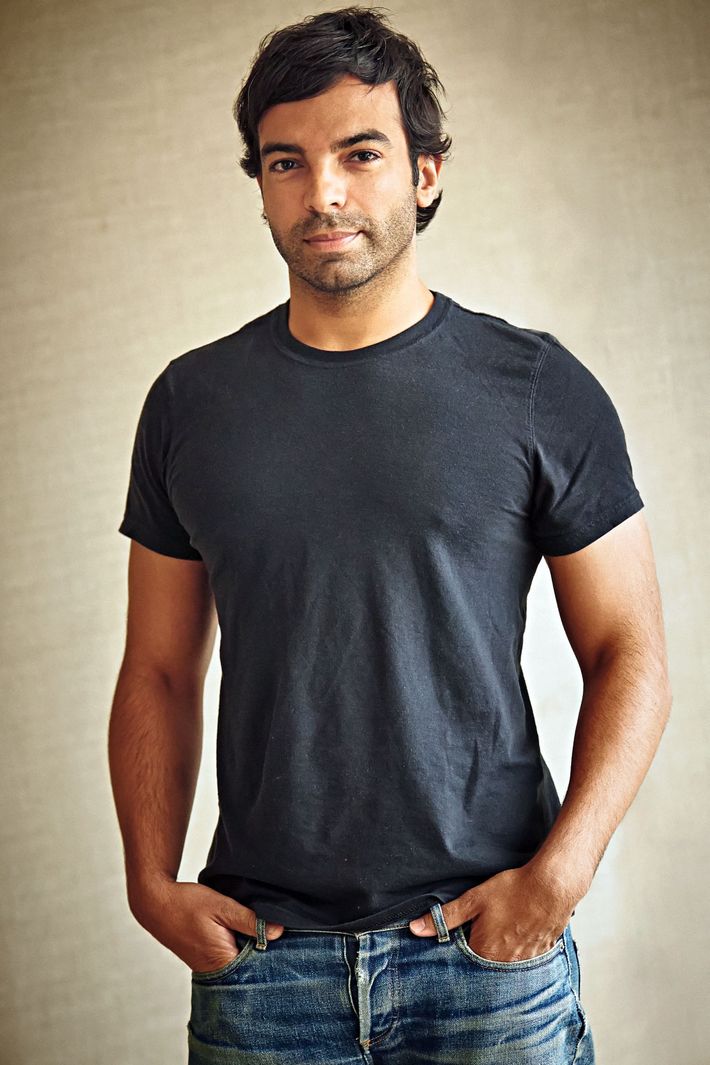
The relationship rules you have with your hairstylist aren’t that different from the ones you might have with your significant other: don’t lie, don’t cheat, break up with dignity. But, for the relationship to really work, you need to trust each other. Harry Josh may be the most trusted hairstylist in the business, with a long roster of clients-turned-friends. He first colored Gisele’s Bündchen’s hair in his sink, and was one of five people at her wedding. (“She just has naturally great hair,” he tells me.) Josh might be best-known to the rest of us as the host of the pre-party to the Met Ball, the Hair Ball, which celebrities attend out of zero press obligation. Josh understands better than most the special relationship a person can have with their hairdresser. Here, the John Frieda creative consultant tells us in his own words why people have hairstylist trust issues — and how you can avoid them.
When it comes to hairstylist trust, there can be complete and utter trust, like there’s no way I’m letting anyone else do this but my hairdresser. But you have to know if your hairdresser is doing things for himself or for your best interest. A lot of hairdressers are creative artists who do what they do because it will look good for them. Part of it is can also be boredom. If hairstylists are cutting trims all day, they’re just like, “Ugh, God. Give me somebody.” And if somebody throws them a nugget and says do whatever you want, they’re just like, “Woo!” They wanted to experiment with the new haircut and think this person has the perfect hair for it, but now she’s left to deal with it. Once you have had that moment even one time in your life: trauma. You’ll be like, “I will never trust anyone again.”
When you go see a hairstylist, you’re giving him or her a position of power unlike anybody else. A hairstylist has, in 45 minutes, the ability to turn a person’s mood around — to actually make them feel really good and feed their ego. Hairdressers are your beauty confidants. I trust you to make me feel good. The person can leave thinking, That looks awesome. No roots; I don’t see any gray; the hair is straight; I love you. Hair gives you a personality that is not removable. It’ll shift over time, but you putting on a smoky eye for the day is going to get washed off. Hair gives you an idea like, Hey, I can be someone else.
And the process takes time! You’re sitting and things come out. Conversation happens, and things start getting much deeper than it would normally get, because you’re seeing your hairstylist for three hours (if it’s color, for example). Maybe you two bonded once on one thing and now you feel like, Oh, I have safety. Then hairdressers start to talk back and share their woes and all of a sudden, you start to build a relationship.

You definitely want to have someone who also can be really honest with you and not take your money. I send people away sometimes. I’ll be like, Your hair is amazing, you’re just having a meltdown because of a boyfriend this week, it has nothing to do with your hair, you don’t need to be blonder, you don’t need bangs. Consultation is really key. Spend as much time as you can discussing the issues with your hairdresser.
Most of the time, when people want to change their hair in a major way, it’s not because of their hair, it’s that they’re bored in their life. Something is going on in their life that they want to shake up — a breakup, a job promotion, a weight loss, weight gain, whatever. Never book your appointment the day you want to do something. Always book a consult, because you will end up feeling pressure, since you’ve booked this hairdresser’s time, to do something.
And the other thing that helps avoid trust issues is to bring pictures of what you like and what you don’t like. Say, “This girls has good bangs. These are bad.” There are a thousand different types of bangs. Give a client the wrong bangs and all of sudden, they’re traumatized on bangs for life. You end up scarring the subject in an emotional way. To avoid these kinds of emotional outbursts, the more information you bring to the table, the better your dialogue is going to be be. The more likely you’ll see in their eyes if the feeling is like, Okay, he doesn’t get this or he’s not really feeling it.
Many women cry in my chair. It happens often if I’ve been talking to them about life, about something that they’re feeling. I’m usually just talking about making them feel good. It’s like a sermon. They’ll say, “I love my hair, but every time I come to you, it’s cathartic. When I leave, I’m still thinking about the things you said.” It can be a powerful relationship, if you want it to be.
Things you buy through our links may earn Vox Media a commission




